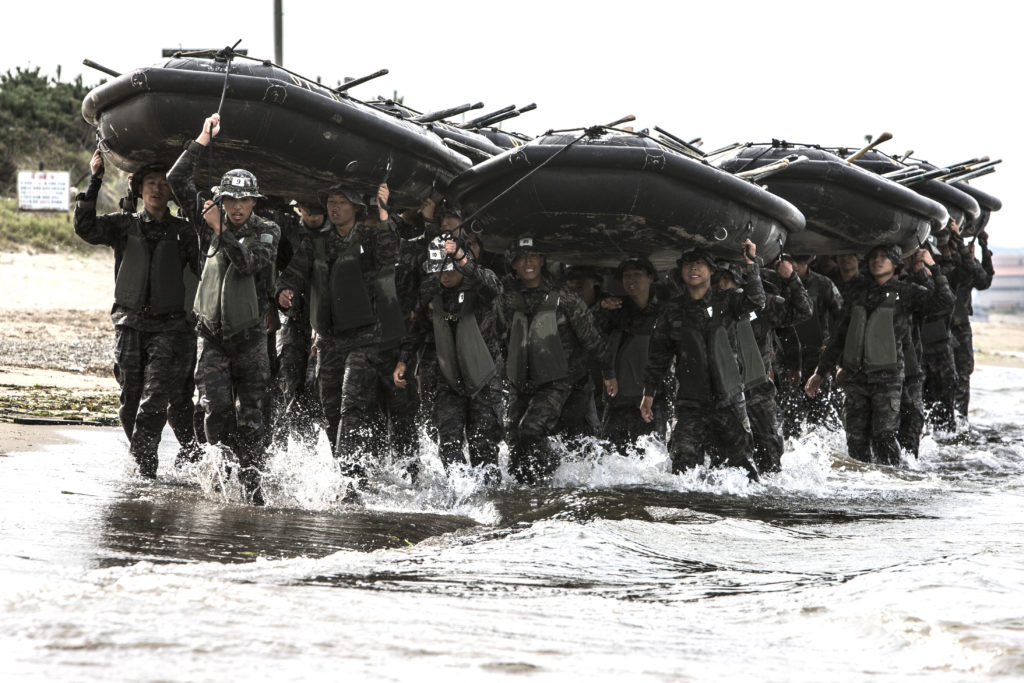The Peninsula
Growing Calls for Military Reform

What Happened
- In early September 2021, a human rights group brought public attention to the suicide of a verbal and physical bullying victim in the South Korean navy.
- This comes on the heels of several recent highly-publicized suicides and abuse incidents within the Korean military.
- In response to years of public pressure, the government has steadily advanced changes, including civilian court trials for military personnel accused of homicide and sex crimes.
Implications: South Korea’s public institutions are increasingly responsive to external calls for change. Even the military, which had enjoyed higher levels of autonomy than other agencies, is submitting to greater public accountability for its treatment of soldiers as media coverage and international scrutiny elevated support for the right of draftees. Heightened public attention on reports of abuse preceded the passage of legislation in early September that gave civilian courts greater oversight on disciplining draftee maltreatment. Areas that received scrutiny from international organizations also underwent reforms. For example, the military’s power to detain soldiers for 15 days without a warrant was fully abolished in August 2020 after domestic civil rights groups received support from the UN Committee Against Torture and the UN Working Group on Arbitrary Detention.
Context: The Korean military is one of the country’s most powerful institutions. In addition to its wide-ranging authorities to counter security threats from North Korea, the military overthrew the Korean government twice and three South Korean presidents came from its ranks. Even after democratization in 1987, the armed forces retained enormous powers. Two of them are particularly significant. First, the legal requirement for all eligible males to serve in the military. Second, the military’s claim to a sizeable and growing defense budget. Its standing in both the government and wider Korean society underscores why advocates face challenges in advancing reforms and why many changes to-date have been superficial.
This briefing comes from Korea View, a weekly newsletter published by the Korea Economic Institute. Korea View aims to cover developments that reveal trends on the Korean Peninsula but receive little attention in the United States. If you would like to sign up, please find the online form here.
Korea View was edited by Yong Kwon with the help of Yubin Huh, and Janet Hong. Picture from the flickr account of Republic of Korea Armed Forces.
